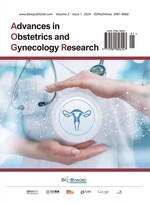Abstract
Objective: To observe the application effect of rapid recovery surgical nursing in patients with ovarian cancer and its impact on pain levels. Methods: Forty cases of ovarian cancer patients admitted from December 2019 to December 2022 were selected as the subjects of this study and divided into two groups using a double-blind method. The number of cases was the same; one group served as the control group, receiving routine care, while the other served as the observation group, receiving rapid recovery surgical care. Postoperative gastrointestinal function recovery indicators, postoperative pain, and postoperative complications between the two groups were compared. Results: The first postoperative exhaust, defecation, and out-of-bed activity times of the 20 patients with ovarian cancer in the observation group were shorter than those of the patients in the control group, and the motilin level 48 hours after surgery was higher than that of the patients in the control group (P < 0.05). The pain score of the observation group 48 hours after surgery (1.33 ± 0.21 points) was lower than that of the control group (P < 0.05). Additionally, the postoperative complication rate of the observation group was 5.00%, which was lower than that of the control group (P < 0.05). Conclusion: Providing rapid recovery surgical care for patients with ovarian cancer can help restore postoperative gastrointestinal function, relieve pain, reduce complications, and promote early recovery.
References
Wang J, Wu Z, Wang H, 2020, The Role of Rapid Recovery Surgical Nursing Model in Postoperative Care of Patients with Ovarian Cancer. Chongqing Medicine, 49(14): 2334–2337.
Sun S, Wang Q, Wang B, et al., 2021, Effects of the Application of Rapid Recovery Surgery Concept on Perioperative Inflammation and Stress Response in Patients with Ovarian Cancer. China Medical Guide, 23(1): 11–15.
Ge L, Li M, Liu X, et al., 2023, The Application Effect of Integrated Medical and Nursing Management Combined with Rapid Recovery Surgery in Patients with Ovarian Cancer. Journal of China Medical University, 52(9): 855–859.
Zhu L, Chen J, Chen X, 2020, Effect of Rapid Recovery Surgical Nursing on Postoperative Gastrointestinal Function Recovery and Comfort in Patients with Ovarian Cancer. Qilu Nursing Journal, 26(2): 38–40.
Qi C, Huang H, 2022, The Preventive Value of Collaborative Nursing Combined with Early Rehabilitation Exercise on Postoperative Deep Vein Thrombosis of the Lower Limbs in Patients with Ovarian Cancer. Thrombosis and Hemostasis, 28(3): 689–690.
Liu Q, Chen Y, 2023, Co-Word Cluster Analysis of Domestic Ovarian Cancer Chemotherapy Nursing Research Hot Spots in the Past 10 Years. General Nursing, 21(34): 4777–4781.
Gao Y, Song Y, Ding M, 2023, Study on the Impact of Psychological Flexibility Training Combined with Humanistic Care and Nursing on Psychological Symptom Clusters and Coping Styles of Ovarian Cancer Patients During Chemotherapy. Life Science Instruments, 21(z1): 127.
Gu H, 2023, Effect of Evidence-Based Nursing on Postoperative Coagulation Indicators and Quality of Life in Patients with Ovarian Cancer. Electronic Journal of Practical Gynecological Endocrinology, 10(2): 121–123.
Yu M, 2023, The Improvement Effect of Orem Self-Care Nursing Model on the Psychological Flexibility Level and Health Behavior of Patients with Ovarian Cancer Chemotherapy. Jilin Medicine, 44(3): 845–848.
Zhou L, Huang L, Huang P, 2023, Effect of Cognitive Behavioral Care Combined with Aerobic Exercise on Sleep Quality in Patients with Ovarian Cancer Chemotherapy. World Journal of Sleep Medicine, 10(1): 195–197 + 200.
Sun R, 2023, Effect of Accelerated Recovery Surgical Care on Early Postoperative Recovery and Hope Level in Patients with Ovarian Cancer. Heilongjiang Medical Science, 46(3): 143–144 + 147.
Lu X, 2023, Analysis of the Application Value of Rapid Recovery Surgical Nursing in Patients with Ovarian Cancer Surgical Treatment. Journal of Qiannan National Medical College, 36(3): 195–197.
Jin Y, Fei Y, 2022, Application of Systematic Nursing in Operating Room Nursing for Ovarian Cancer Patients and Its Impact on Complications. International Journal of Nursing, 41(4): 693–697.
